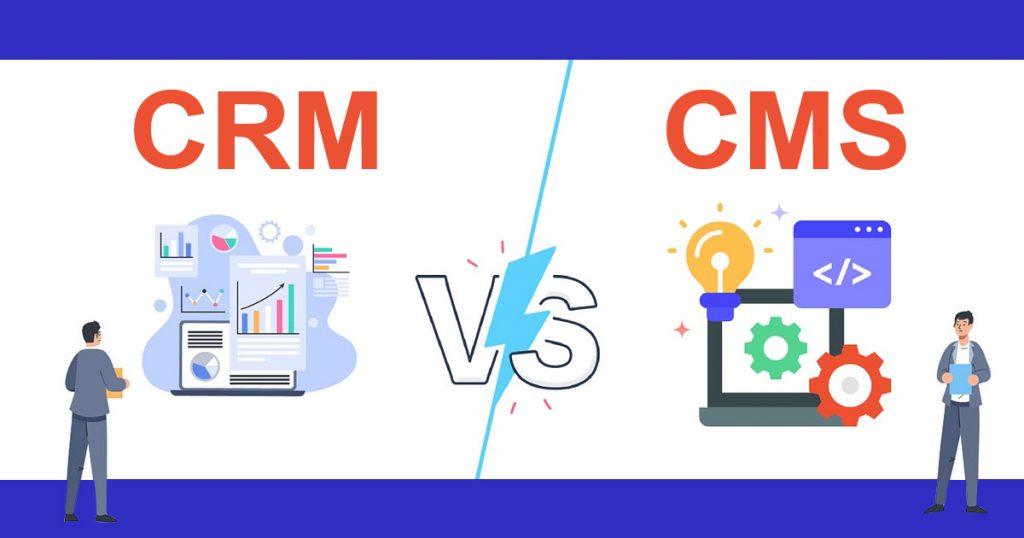Many online businesses rely on tools to manage their operations efficiently. Two such tools are CRM (Customer Relationship Management) systems and CMS (Content Management Systems). Each serves a distinct purpose but can complement each other when used together. Understanding the differences and benefits of CRM and CMS can help you choose the right solution for your needs and even leverage their integration to maximize business efficiency.
CRM vs. CMS
CRM and CMS are often discussed together, but they cater to different aspects of business operations. CRM, or Customer Relationship Management, focuses on managing and analyzing customer interactions and data. It aims to improve customer relationships, boost sales, and streamline business processes. On the other hand, CMS, or Content Management System, is designed to manage and publish digital content on websites. It simplifies content creation, editing, and updating, making it easier for users to maintain their online presence.
The difference between CRM and CMS lies in their core functionalities. CRM systems handle customer data, track interactions, and support sales and marketing efforts. CMS platforms manage the content that appears on a website, such as blog posts, product descriptions, and multimedia elements. Understanding whether CRM or CMS suits your needs can help in making more informed decisions about which tools to implement.
Key Features of CRM
CRM systems offer a range of features designed to enhance customer relationships and streamline business processes. Here are some key features commonly found in CRM systems:
- Customer Data Management: CRMs store and organize detailed information about customers, including contact details, purchase history, and interaction records.
- Sales Tracking: They help track sales activities, monitor performance, and forecast future sales trends.
- Marketing Automation: CRM systems can automate marketing tasks such as email campaigns, lead scoring, and follow-ups, improving efficiency and effectiveness.
- Customer Service Support: Many CRMs offer tools for managing customer support tickets, tracking service requests, and ensuring timely resolutions.
- Analytics and Reporting: CRMs provide insights into customer behavior and business performance through customizable reports and dashboards.
Key Features of CMS
CMS platforms are essential for managing website content and ensuring a smooth user experience. Here are some notable features of CMS tools:
- Content Creation and Editing: CMS platforms offer user-friendly interfaces for creating, editing, and formatting content without needing technical expertise.
- Template and Theme Options: They provide a variety of templates and themes to customize the appearance of websites and maintain brand consistency.
- Content Management: CMS tools allow for easy organization of content, including categorization, tagging, and scheduling for publication.
- User Access Control: CMS platforms support different user roles and permissions, ensuring that only authorized individuals can make changes or updates.
- SEO Tools: Many CMS platforms come with built-in SEO features or plugins to help optimize content for search engines and improve visibility.
Benefits of CRM-CMS Integration
Integrating CRM and CMS systems can transform how businesses manage customer relationships and content. One significant advantage is the ability to synchronize customer data across platforms. This integration ensures that customer information collected through the CRM is seamlessly updated in the CMS, allowing for more personalized and targeted content delivery. By leveraging CRM data, businesses can tailor website content to specific customer segments, leading to improved engagement and conversion rates.
Another benefit is enhanced efficiency and streamlined processes. Integration reduces the need for manual data entry and minimizes the risk of errors, as customer information flows automatically between systems. This seamless data transfer also enables more effective marketing campaigns and customer support, as businesses can access up-to-date information and insights in real-time. Overall, CRM-CMS integration supports better decision-making and enhances the customer experience by providing relevant and timely content.
How to Integrate Your CMS with a CRM
Integrating a CMS with a CRM system can significantly enhance your business operations by streamlining data sharing and improving marketing efforts. Here’s how you can achieve this integration with popular platforms:
Content Hub
A Content Hub serves as a central repository for all your digital content. Integrating it with your CRM allows for seamless data synchronization and helps in personalizing content based on customer interactions and preferences.
WordPress
WordPress is a widely used CMS that can integrate with various CRM systems through plugins and custom APIs. This integration enables you to manage website content while leveraging CRM data for targeted marketing and customer engagement.
Joomla
Joomla offers extensions and modules that facilitate integration with CRM systems. This connection helps synchronize customer information and streamline content management processes, enhancing overall efficiency.
Wix
Wix provides integration options with several CRM tools, allowing users to connect their website content with CRM data. This integration helps in automating marketing efforts and improving customer interactions.
Drupal
Drupal supports integration with CRM systems through modules and custom solutions. By linking Drupal with a CRM, you can manage content effectively while utilizing CRM insights to enhance customer relationships.
Shopify
Shopify integrates with various CRM platforms to synchronize customer data, track sales, and streamline content management. This integration helps e-commerce businesses provide a better customer experience and optimize marketing strategies.
Choosing the Right Solution for Your Business
When deciding between CRM and CMS, it’s essential to consider your specific business needs. CRM systems excel at managing customer relationships and improving sales processes, while CMS platforms are crucial for handling website content efficiently. Integrating these systems can offer a comprehensive solution that enhances both customer engagement and content management. By understanding the distinct functions of CRM and CMS, and leveraging their integration, you can achieve a more cohesive and effective business strategy.
